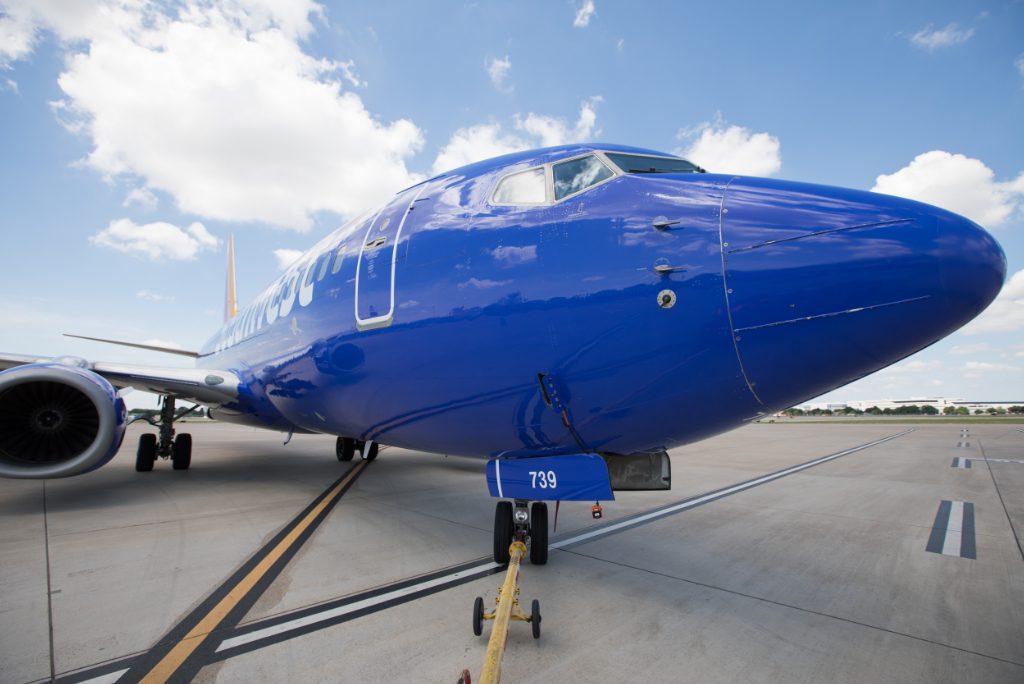Skift Take
Operational software may sound dull, but it could become dramatically lucrative for Sabre once the crisis recedes and airlines and hotels resume spending on travel technology.
Sabre said on Tuesday it has a chance after the pandemic subsides of beating its pre-crisis margins. Currently, the Texas-based travel technology company is fine-tuning its operational software solutions in anticipation of a post-pandemic demand from airlines and hotels, executives said.
The comments came against the backdrop of a year that has seen a rare, dramatic upswing in capital spending by U.S. companies in many sectors outside of travel. That tech investment has driven increases in software subscriptions, benefiting software companies.
Whenever the pandemic subsides, the travel sector may play catch-up, investing heavily in capital spending to improve their operations, too. That trend would benefit Sabre, which sells IT and software solutions for airlines and hotels. Sabre claims expertise in collecting and analyzing travel company data. The expertise could let it embed the company’s services more deeply into major clients’ operations, providing software cross-selling opportunities.
“Industries outside of travel have felt great about what they’ve done to modernize their infrastructure, get better insights about their customers, and maybe deliver better experiences while actually improving their own financial performance,” said Scott Wilson, president of hospitality solutions, during a media press conference on Tuesday.
“So the hoteliers that I talk to and the airlines that my colleagues talk to, they hear the same thing,” Wilson said. “Hotel companies and airlines want what the other industries have been getting in technology. But they’re trying to find the stability in the ground, if you will, from which they can make that same launch.”
The hopes for profit remain in an elusive future, as the pandemic continued to drag on the company’s earnings during the quarter ended June 30. Sabre suffered a net loss of $251.2 million on consolidated revenue of $419.6 million.
Executives responded to analyst questions about their outlook by saying that they didn’t see anything related to the pandemic’s latest zig-zag trajectory worldwide that would change their ability to hit planned targets on having sufficient cash for operations.
Sabre’s airline and airport IT solutions and its hospitality solutions remain smaller businesses than its flagship distribution service for airlines and travel agencies. But the company’s sales of operational software will likely grow much faster than its distribution business as the pandemic wanes.
“[For hospitality solutions] our incoming project work is now above 2019 levels, driven primarily by North America and Latin America,” said president and CEO Sean Menke. “This implementation work sets the foundation for higher transaction volumes in the future.”
During the second quarter, Sabre had a notable customer win for its full-service airline reservation system, SabreSonic, with an unnamed large carrier that had almost 40 million passengers boarded in the pre-pandemic year of 2019.
“We expect high incremental margins during the travel recovery after the fixed cost base is covered,” said executive vice president and chief financial officer Doug Barnett “With our important technology transformation, we are positioning the company for an expected larger revenue opportunity and lower costs.”
But don’t expect a big boom in travel software in the next six months or even longer.
“We have to see things on a global basis, not just a U.S. or a North America basis, as governments start, stop, start, stop [with travel restrictions] as various needs around the pandemic or additional waves occur,” said Dave Shirk, president of travel solutions, during the media press conference. “Airlines are cautious about preserving capital given continued uncertainties.”
Airline investment in technology may come in phases by priority as they seek an ascent out of the pandemic.
“As the recovery continues, airlines will probably have a strategic priority first and foremost in revenue and yield, which is why we’ve been putting so much energy into our retailing and distribution technology investments over the last couple of years,” Shirk said. “Airline capital spending probably has a much slower ramp [relative to other industries and possibly the hospitality sector], but then normalizes itself.”
During the second quarter, Sabre racked up an $11 million jump in costs related to legal matters. The company has denied wrongdoing in a lawsuit filed in July by customer American Airlines about how its fares are displayed. Also in July, Sabre and rival Amadeus received the welcome news that the European Commission had not found anything sufficiently deserving of more scrutiny about the way two companies set up their agreements with travel agents and airlines.
Sabre had no update on its distribution talks with Emirates. In July, Sabre and Emirates contract elapsed without renewal as the airline added a surcharge on tickets booked by travel agencies through Sabre’s systems, as Skift has reported.
“Emirates’ and Sabre’s inability to reach commercial and content terms is, however, proving challenging for all distribution partners that operate off the Sabre system,” said a spokesperson for Flight Centre, the largest travel agency in Australia. “In our Sabre markets, where our customers require Emirates, we have found alternate methods to book. We continue to work closely with Emirates and Sabre and hope the outstanding content issues will be resolved ahead of the rebound in travel.”
The Daily Newsletter
Our daily coverage of the global travel industry. Written by editors and analysts from across Skift’s brands.
Have a confidential tip for Skift? Get in touch
Tags: earnings, gds. global distribution systems, global distribution systems, sabre, travel technology
Photo credit: A 2020 photo of Southwest Airlines operations at Dallas Love Field in Texas. Southwest signed a deal with Sabre, a travel technology company, in the second quarter to expand their partnership on sourcing business travel bookings. Stephen M. Keller / Southwest Airlines
